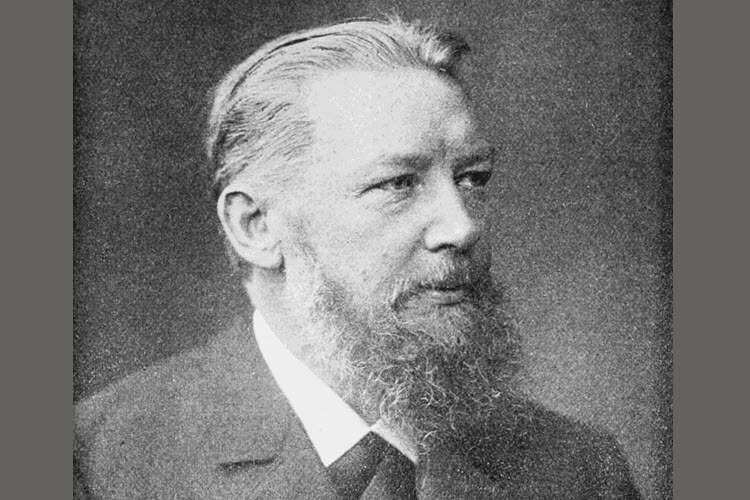Exploring Wilhelm Ostwald’s Scientific Legacy: Pioneering Chemistry and Beyond

Wilhelm Ostwald (2 September 1853 – 4 April 1932) was a German chemist and philosopher who made significant contributions to the fields of physical chemistry and chemical thermodynamics. He was awarded the Nobel Prize in Chemistry in 1909.
Life and Career
Wilhelm Ostwald was born on 2 September 1853, in Riga, Latvia, which was then part of the Russian Empire. He was the son of master-cooper Gottfried Wilhelm Ostwald and Elisabith Leuckel. Ostwald was the middle child of three, born after Eugen and before Gottfried.
Ostwald developed an interest in science as a child and conducted experiments at his home, particularly related to fireworks and photography. He attended the “Real gymnasium” in Riga and in 1872, he was admitted to Dorpat University (now the University of Tartu, Estonia) to study chemistry. He completed his Kandidatenschrift examinations there in 1875.
During his time at Dorpat, Ostwald had significant exposure to the humanities, the arts, and philosophy, which became a focus of his endeavors after his retirement from academia. After his early education in Riga, he enrolled in 1872 at the University of Dorpat, where he studied chemistry under Carl Schmidt and received a candidate’s degree (1875), a master’s degree (1876), and a doctorate (1878).
After completing his doctorate, Ostwald spent several years teaching at the University of Leipzig before accepting a position as professor of physical chemistry at the University of Riga in 1887. He also founded the journal “Journal of Physical Chemistry” in 1887, which became one of the most important scientific publications in its field.
He was appointed professor of physical chemistry at the University of Leipzig, a position he held until his retirement in 1922.
His most significant contributions were his development of the concept of catalysis. He observed that certain substances could accelerate chemical reactions without themselves undergoing permanent chemical change, and he recognized the importance of this phenomenon in many industrial and biological processes.
Ostwald also made important contributions to the study of solutions, including the development of the Ostwald dilution law, which relates the concentration of a solute to its molecular conductivity. He also proposed a theory of colloidal behavior in solutions, which helped to explain many important physical and chemical properties of colloids.
In addition to his scientific work, Ostwald was also a prominent philosopher and advocate of positivism, a philosophical approach that emphasizes the importance of empirical evidence and scientific observation in understanding the world. He wrote extensively on a wide range of topics, including the philosophy of science, the relationship between science and society, and the role of science in education and culture.
He died on 4 April 1932, in Leipzig, Germany.
Nobel Discovery
He was awarded the Nobel Prize in Chemistry in 1909 in recognition of his work on catalysis and for his contributions to the development of physical chemistry as a distinct field of study. Wilhelm Ostwald made significant contributions to the field of chemistry, and his major achievements include:
- Establishing Physical Chemistry: Ostwald was instrumental in establishing physical chemistry as an acknowledged branch of chemistry.
- Work on Catalysis: He made significant contributions to the understanding of catalysis, which is the process of increasing the rate of a chemical reaction by adding a substance known as a catalyst.
- Chemical Equilibria and Reaction Velocities: Ostwald’s work on chemical equilibria and reaction velocities was groundbreaking and earned him the Nobel Prize in Chemistry in 1909.
- Ostwald’s Law of Dilution: In 1888, he discovered Ostwald’s law of dilution for an electrolyte.
- Textbooks and Journals: Ostwald authored the “Lehrbuch Der Allgemeinen Chemie” (Textbook of General Chemistry), which was one of the first comprehensive textbooks in inorganic, analytical, and physical chemistry5. He also co-founded and edited the first 100 volumes of the “Zeitschrift für Physikalische Chemie” (Journal of Physical Chemistry).
- Colour Science: Ostwald was also one of the leading researchers in colour science, enriching chromatics through his quantitative theory of colours and his subjective chromatic system.
Award and Legacy
He was awarded the Nobel Prize in Chemistry in 1909 in recognition of his work on catalysis and for his contributions to the development of physical chemistry as a distinct field of study.
Ostwald’s legacy in the field of physical chemistry is significant. He played a key role in establishing physical chemistry as a distinct field of study, and his work on catalysis and solutions helped to lay the foundations for many important industrial and biological processes.
Observer Voice is the one stop site for National, International news, Sports, Editor’s Choice, Art/culture contents, Quotes and much more. We also cover historical contents. Historical contents includes World History, Indian History, and what happened today. The website also covers Entertainment across the India and World.
Follow Us on Twitter, Instagram, Facebook, & LinkedIn

